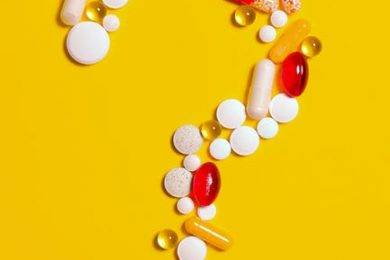Did you know that a staggering 2.2 billion people worldwide have a vision impairment? However, almost half of these cases were either preventable or still unaddressed.
With that said, eating right and keeping a healthy way are some of the best ways to prevent eyesight issues. For starters, scientists have found a link between an unhealthful diet and blindness. Obesity can also raise one’s risk for eye disorders such as glaucoma.
As such, taking more of the best vitamins for vision health can help reduce your risks of eyesight woes. We’ve rounded up some of the essential nutrients for good eye health below, so be sure to read on.
Vitamin A
Vitamin A (retinol) deficiency is the leading cause of preventable blindness in children. However, adults with severe retinol deficiencies are also at risk.
For starters, vitamin A helps in the production of pigments needed for good eye health. One of these is rhodopsin, a photopigment that gives the eye its ability to see in low light conditions. Thus, a lack of retinol can contribute to the development of night blindness.
Vitamin A also nourishes and moisturizes the cornea, the outermost part of the eye. As such, retinol deficiency can cause eye dryness, a condition known as xerophthalmia. This is a progressive eye disorder that can lead to corneal ulcers and blindness.
The great news is that vitamin A is in many veggies, especially in the orange ones like carrots and pumpkin. Leafy green vegetables, such as spinach and chard, are also rich in retinol. Fruits like cantaloupes and ripe mangoes are also good sources.
B Vitamins
Eight B vitamins make up the entire vitamin B complex. Of these, vitamins B6, B9, and B12 appear to be some of the best vitamins for eye health. A study found that taking them together can lower homocysteine levels in the body.
Homocysteine, in turn, is an amino acid that the body uses to create proteins. However, having too much of this may lead to a higher risk of age-related macular degeneration.
One of the chief roles of vitamins B6, B9, and B12 is to metabolize homocysteine. Thus, a lack of these nutrients may result in higher homocysteine levels. For this reason, studies recommend treating elevated homocysteine levels with these B vitamins.
Fortunately, you’ll find B vitamins, including B6, B9, and B12, in whole grains. They’re also in legumes and fortified food products, such as breakfast cereals. Many multivitamin supplements, such as Vita Crate, also contain the B vitamin complex.
Vitamin C
Vitamin C (ascorbic acid) is a potent antioxidant that helps combat oxidative damage. Oxidative damage, in turn, is a chief factor in age-related cataracts. Ascorbic acid can help by reducing the inflammation that results from oxidation.
Peppers, strawberries, kale, kiwi, and citrus fruits are some of the best vitamin C sources.
Keep It Clear With the Best Vitamins for Vision Health
As you can see, vitamins A, B, and C are some of the best vitamins for vision health and disorder prevention. So, to help keep your eyes in tip-top condition, be sure to pack your meals with these nutrients.
Interested in more nuggets of wisdom to help you live healthier and happier? Feel free to browse our other health, well-being, and lifestyle resources then!











